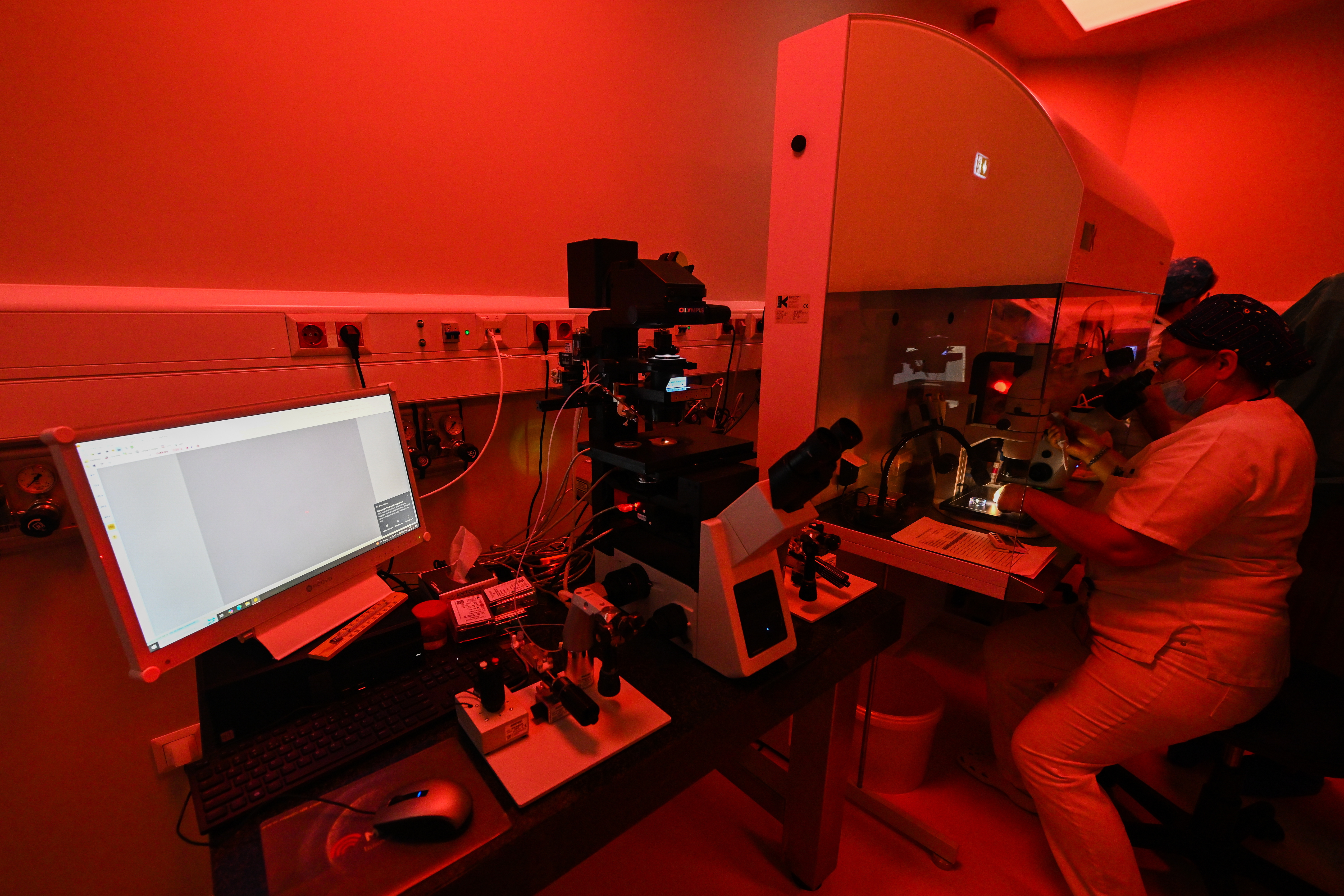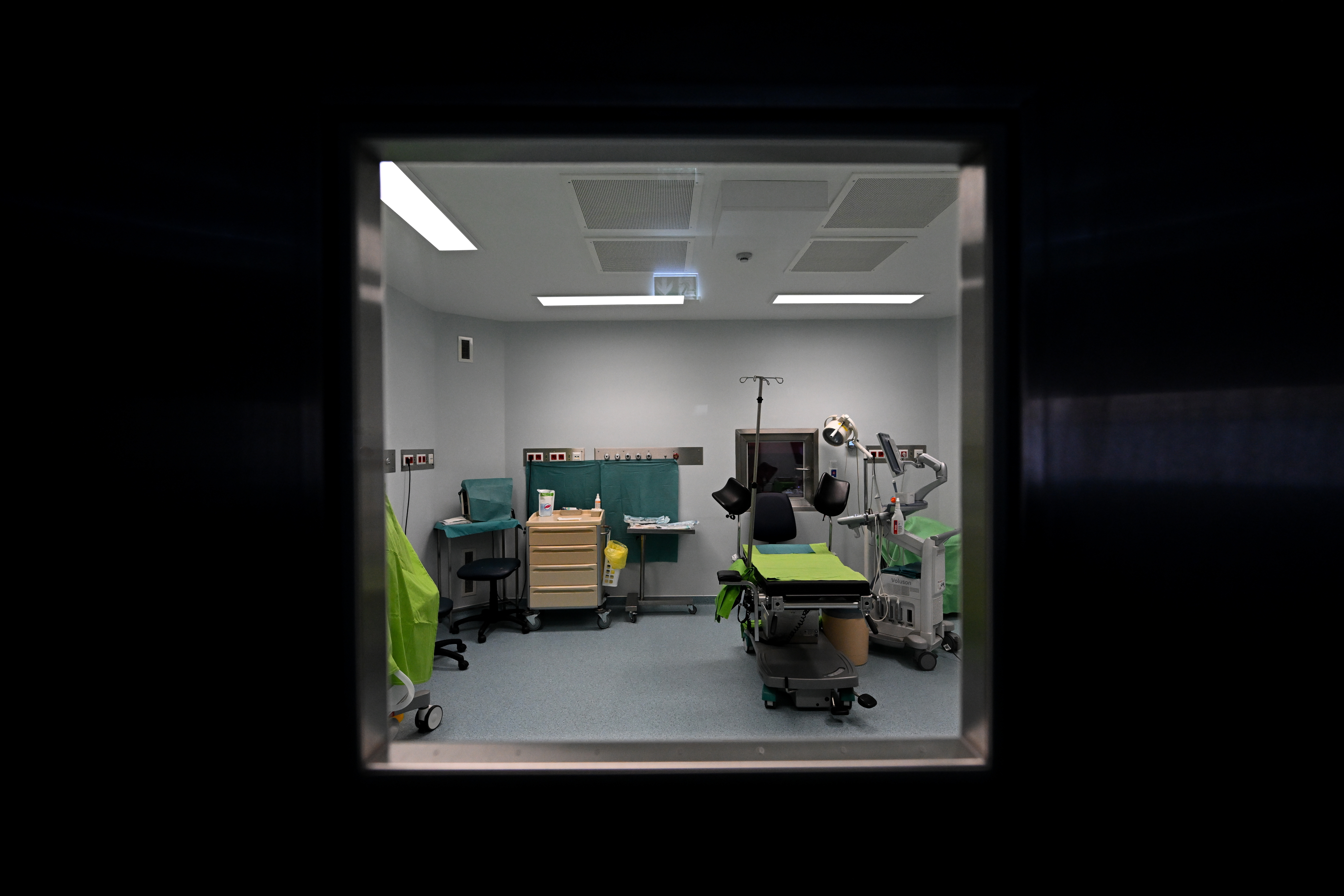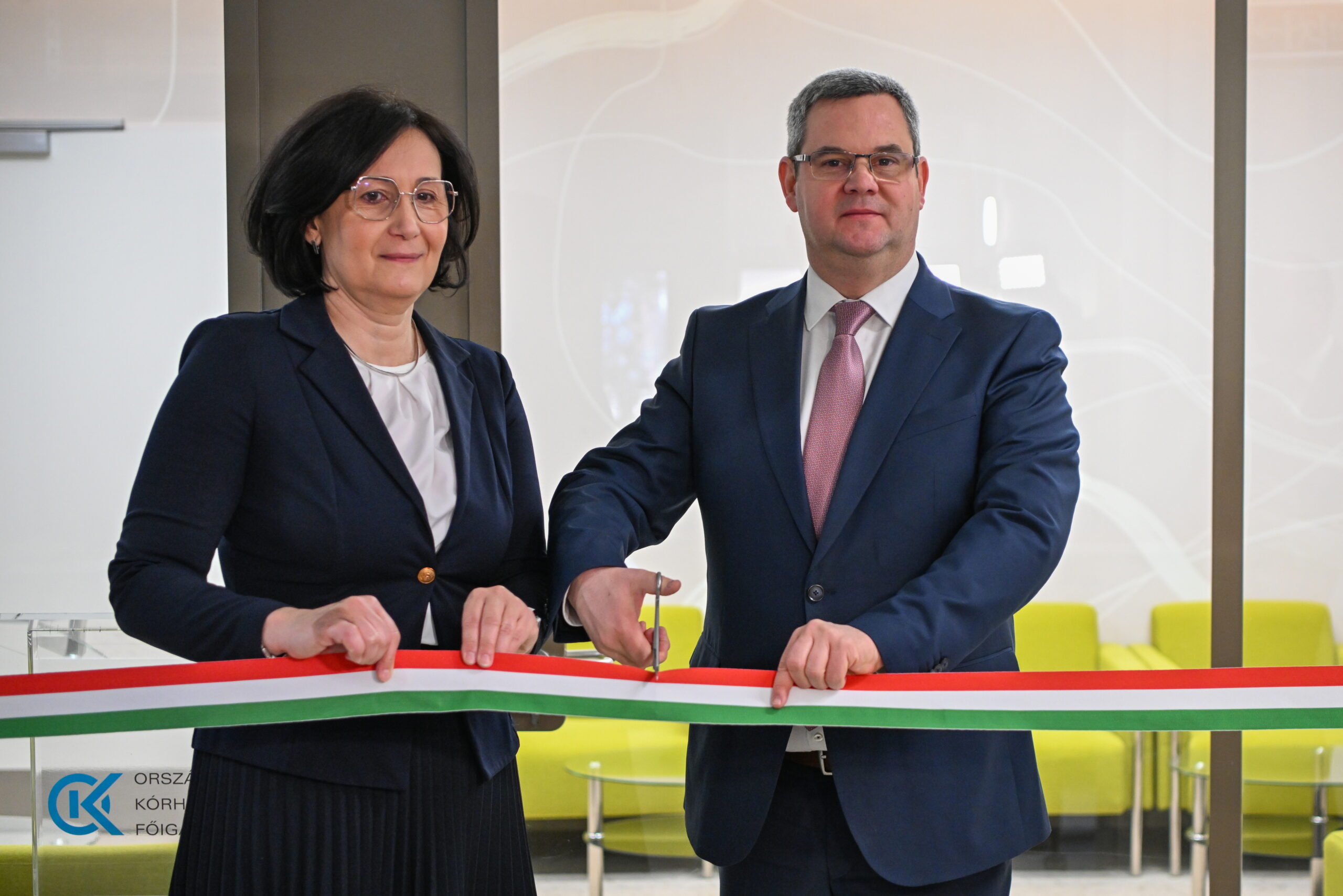
Today in Hungary, more than a thousand parents with a suitability decision are waiting to adopt a child.Continue reading

It was the right decision to strengthen the state’s role in infertility treatment, and the developments are also aimed at making care more efficient for both women and men, the Secretary of State for Health of the Ministry of the Interior said on Monday in Budapest, at the inauguration of the Kútvölgyi Institute of the renewed DUNAMENTI REK Reproduction Center.
The renovation of the institute, located on the premises of the St. John’s Hospital in north Buda, was financed with HUF 1.5 billion (EUR 3.7 million) of domestic funds. According to the World Health Organization (WHO), one in six couples suffers from some kind of infertility problem, and the developments are aimed at improving the efficiency of care for both women and men.

Embryology laboratory at the renewed institute. Photo: MTI/Illyés Tibor
State Secretary Péter Takács recalled that the state has been taking on a greater role in the treatment of infertility since 2016.
In Hungary, infertility treatment has been made free of charge, and private providers have been nationalized, so that only public centers can provide IVF treatment.
According to Takács, this has led to transparent data and a 2.5-fold increase in the number of such treatments. The number of children born through infertility treatments has doubled, he said, adding that while in 2016, 1,400 to 1,450 children were born annually thanks to such procedures, last year 3,000 were born.

An operation room in the institute. Photo: MTI/Illyés Tibor
He added that the new professional programs introduced in this area of care, the legislative environment, and the changes in funding have also proved to be positive. These have made it possible for Hungarian couples struggling with infertility to access state-of-the-art procedures, he emphasized.
Zita Szondi, deputy director-general for health services of the National Directorate General for Hospitals, which is responsible for the management of infertility centers, said the government’s aim is to ensure that every child is born, so helping people with fertility problems is a priority. She recalled that an important achievement was that
publicly funded fertility preservation for cancer patients had been made possible and that training courses had been launched to provide additional qualifications in this field, thus contributing to the professional success of the treatments.

L-R: Zita Szondi and Péter Takács. Photo: MTI/Illyés Tibor
Szondi also said that in addition to IVF centers, specialized infertility outpatient clinics would play a key role, where basic examinations could be carried out.
She pointed out that 61% of infertility care is provided in Budapest, which is why the infrastructural renewal of this institute is so important. Further investments and improvements are also underway, with almost 2.5 billion forints worth of medical equipment and instruments planned for the development of centers throughout the country.
Via MTI, Featured photo via Pexels